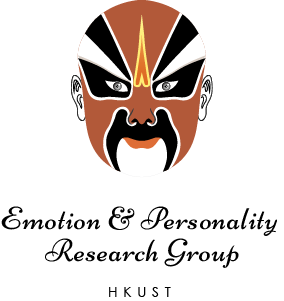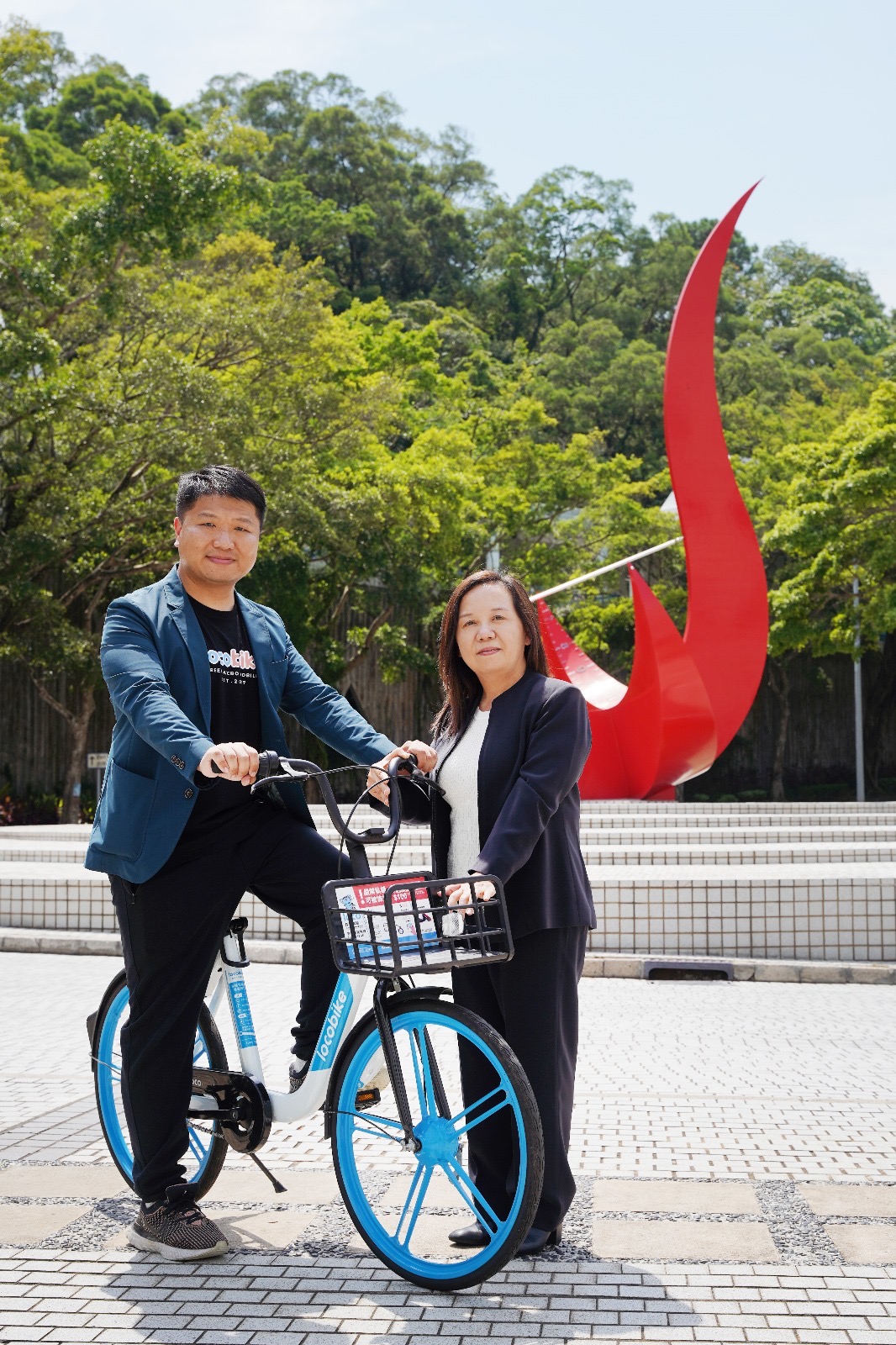MEMBERS
Manager

Jennifer WANG | CV | Email
MSc in Child and Adolescents Mental Health, University College London (2023)
Before joining the research group in September 2025, Jennifer served as a well-being practitioner in secondary schools, providing mental-health support to adolescents. Her work in this setting deepened her curiosity about how emotions are related to personality.
Research Associates

Nicolson SIU | CV
PhD in Psychology, Chinese University of Hong Kong (2015)
Nicolson is a neuropsychologist who joined the Division of Social Science at HKUST in 2022. His research focuses on human cognitive functions. Nicolson is committed on exploring the relationship between the brain and behavior with neurophysiological method like electroencephalography (EEG) and Transcranial Magnetic Stimulation (TMS). He also conducted intervention studies to support children with special educational needs (SEN) and elderly with cognitive impairments. He has consultancy experience in projects related to neurophysiological assessment and training for children with SEN.
Research Assistant Professor

Mary MA | CV
PhD in Social Science, HKUST (2023)
Mary is a Research Assistant Professor at the Division of Social Science, HKUST. Prior to joining the division, she served as a postdoctoral research associate at the Department of Psychology, University of Virginia from 2023 to 2024, and as a visiting scholar at the Graduate School of Education, Harvard University from 2022 to 2023. Her research focuses on social cognitive and emotional development, with a particular interest in how both children and adults utilize various cues to identify reliable partners for cooperation and trustworthy informants for learning in the social environment.
Post-doctoral Fellow
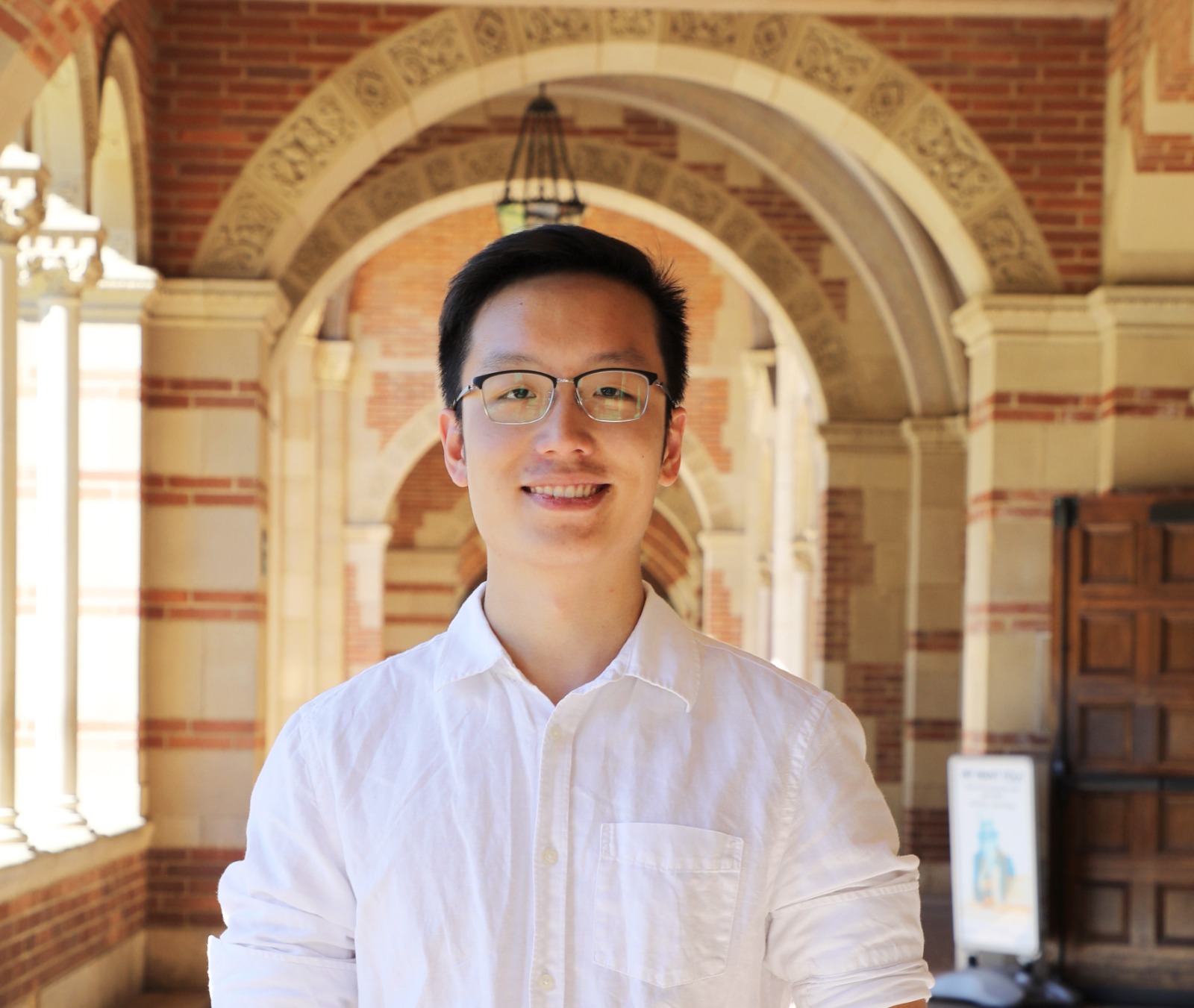
Sean GUO | CV
PhD in Psychology, The University of Hong Kong (2025)
After studying the role of memory in correcting misinformation at HKU, Sean is now working on integrating large language models into psychological research. His research interests are misinformation, individual differences, and memory.
Postgraduate Students

Jacky FENG | CV
MPhil in Social Science, HKUST (expected in 2026)
After obtaining the MA degree in Social Science from HKUST, Jacky decided to pursue his MPhil study in Fall 2024. His research interest focuses on the intersection between prosocial behavior and emotion.

Raquel YANG | CV
MPhil in Social Science, HKUST (expected in 2027)
After obtaining her BA in Psychology at the University of British Columbia, Raquel joined HKUST in Fall 2025 to pursue an MPhil in Social Science. Her research interests include emotion and motivation, parasocial interaction, and prosocial behaviors.

Poppy ZHU | CV
MPhil in Social Science, HKUST (2025)
Poppy joined the research group in August 2023 after obtaining her MA degree in social science from HKUST. She completed her MPhil study in the summer of 2025. Her research interest lies in the sentiment analysis of social media data.
ALUMNI

FOK Hung-kit
Lecturer, The Chinese University of Hong Kong

JIANG Da
Associate Professor, The Education University of Hong Kong
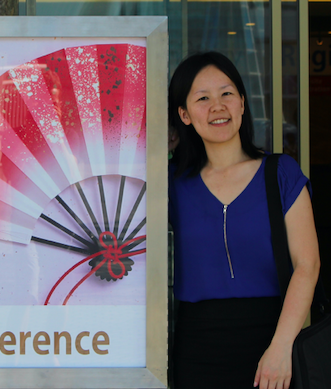
Ines LIN
Research Assistant Professor, The Education University of Hong Kong

Eva LIU
PhD Student, Yale University
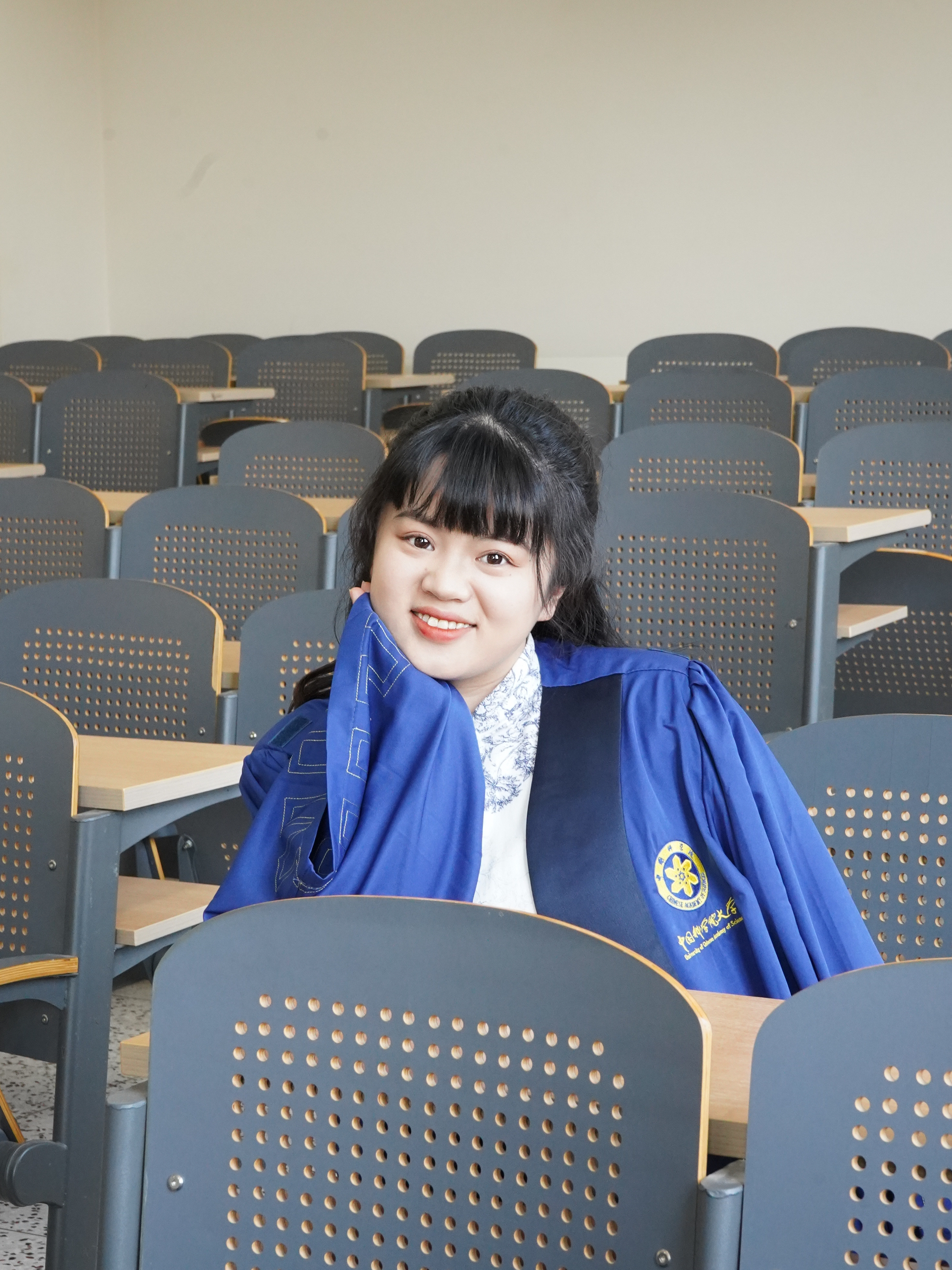
Winnie YANG
PhD Candidate, University of Groningen
PUBLICATIONS
- Yik, M., & Zhu Z. (in press). Mapping emotion across the world: Similarities and differences. In M. Yik (Ed.), The Oxford handbook of emotion and culture. Oxford University Press.
- Zhu, Z., & Yik, M. (2026). The emotional trajectory of the non-suicidal self-injury: Sentiment analysis using social media data. Journal of Computational Social Science, 9:7.

- Yik, M., Kwok, F. H. C., & De Roover, K. (2026). Measuring Chinese personality in eight minutes: A short measure of the five-factor model of personality. Journal of Personality Assessment,108, 90–100.

- Yik, M., & Siu, N. Y.-F. (2025). Who thrives in a public health crisis? Acta Psychologica, 253, 104636.

- Yik, M., & Siu, N. Y.-F. (2024). Extraverts suffer from social distancing: A 30-day diary study. Personality and Individual Differences, 218, 112433.

- Yik, M., Sze, I. N. L., Kwok, F. H. C., & Lin S. (2023). Mapping Chinese personality: An assessment of the psychometric properties of the NEO-PI-3 in monolingual and bilingual studies. Assessment, 30, 2031–2049.

- Yik, M., et al. (2023). On the relationship between valence and arousal in samples across the globe. Emotion, 23, 332-344.

- Yik, M., Pun, W. K., Kwok, F. H. C., Pho, J., & Ng, C. W. W. Ng (2023). Perceptions of landslide risks and warnings in Hong Kong. Landslides, 20(60), 1211-1224.

- Yik, M., & Chen, C. Z. (2023). Unravelling Chinese talk about emotion. Frontiers in Psychology, 14:1157863.

- Chen, X., & Yik, M. (2022). The emotional anatomy of the Wuhan lockdown: Sentiment analysis using Weibo data. JMIR Formative Research, 6(11): e37698.

- Yik, M., Wong, K. F. E., & Zeng, K. J. (2019). Anchoring-and-adjustment during affect inferences. Frontiers in Psychology, 9:2567.

CURRENT PROJECTS
(1) HappyU: A 90-day Diary Study

 About the Project
About the Project
This project aims to explore student well-being by tracking the happiness and learning experiences of Hong Kong university students over a 90-day period. Building on prior findings that students thrived during the height of the COVID-19 pandemic, the study seeks to uncover the factors influencing happiness to develop actionable strategies that foster students’ resilience in coping with everyday challenges.

 Collaborators
Collaborators
Michelle YIK, Professor / Hong Kong University of Science and Technology
Bennett YIM, Professor / The University of Hong Kong
Patrick LEUNG, Professor / The Chinese University of Hong Kong
CHENG Chen, Assistant Professor / Hong Kong University of Science and Technology
MA Shaocong, Research Assistant Professor / Hong Kong University of Science and Technology
Nicolson SIU, Lecturer / Hong Kong University of Science and Technology
Celine SONG, Professor / Hong Kong University of Science and Technology
WANG Jingyi, Assistant Professor / Hong Kong University of Science and Technology

 Contact us
Contact us
(2) The Oxford Handbook of Emotion and Culture Project

 About the Project
About the ProjectThe general goal of this handbook is to bring together contemporary and comparative research in the interplay between emotion and culture, from across the fields of psychology, neuroscience, biology, anthropology, philosophy, and linguistics, forming a comprehensive and exhaustive handbook. The intended readership of this handbook will be inclusive, ranging from researchers and scholars in the academic community, through coaches and trainers in the professional community, to students in the tertiary market.
Klaus R. Scherer (University of Geneva, Switzerland)
Susanna Schmidt (University of Torino, Italy)
Maria Gendron (Yale University, USA)
Michelle Yik (Hong Kong University of Science and Technology, Hong Kong)
Francesco De Toni (The Australian National University, Australia)
Si Jia Wu (University of Toronto, Canada)
Laura Guzman (University of California, Berkeley, USA)
Alan J. Fridlund (University of California, Santa Barbara, USA)
Blythe A. Williams (Duke University, USA)
Yupei Li (Imperial College London, UK)
Mohamed Mady (Technical University of Munich University Hospital, Germany)
Sunil Munthumoduku Krishna Murthy (Technical University of Munich University Hospital, Germany)
Qiyang Sun (Imperial College London, UK)
Björn W. Schuller (Imperial College London, UK)
Zhimeng Li (Yale University, USA)
José Sánchez-García (International University of La Rioja, Spain)
Paul L. Harris (Harvard University, USA)
Qi Wang (Cornell University, USA)
Linda Camras (DePaul University, USA)
Eric Walle (University of California, Merced, USA)
Xianmin Gong (Chinese University of Hong Kong, Hong Kong)
Helene H. Fung (Chinese University of Hong Kong, Hong Kong)
Diane M. Mackie (University of California, Santa Barbara, USA)
Eliot R. Smith (Indiana University Bloomington, USA)
James Chinn (University of California, Riverside, USA)
Stephen Cadieux (University of California, Riverside, USA)
Sonja Lyubomirsky (University of California, Riverside, USA)
Verity Lua (Stanford University, USA)
Raphael Uricher (Stanford University, USA)
Hoi-Wing Chan (Hong Kong Polytechnic University, Hong Kong)
Vivien Pong (Hong Kong University of Science and Technology, Hong Kong)
Stephanie A. Shields (The Pennsylvania State University, USA)
Ziyue Zhu (Hong Kong University of Science and Technology, Hong Kong)
Kirby T. Lam (Duke University, USA)
Mercedes M. Muñoz (Duke University, USA)
Antony Manstead (Cardiff University, UK)
Kathryn Bolton (Toronto Metropolitan University, Canada)
Lixia Yang (Toronto Metropolitan University, Canada)
Marie Coura Diagne (Boston College, USA)
James Floman (Yale Center for Emotional Intelligence, USA)
Zorana Ivcevic (Yale Center for Emotional Intelligence, USA)
Zhenlan Wang (Yale Center for Emotional Intelligence, USA)
Marc Brackett (Yale Center for Emotional Intelligence, USA)
Kristen Lindquist (The Ohio State University, USA)
Julianna Boyle (The College of New Jersey, USA)
Gesa S. Duden (Concordia University, Canada)
Jiahong Sun (Concordia University, Canada)
Yulia E. Chentsova-Dutton (Georgetown University, USA)
Thomas F. Denson (University of New South Wales, Australia)
Eddie Harmon-Jones (University of New South Wales, Australia)
Pamela Taylor (Akita International University, Japan)
SinHui Chong (Nanyang Technological University, Singapore)
Lanting Cheng (Chinese University of Hong Kong, Shenzhen, China)
Kerry Kawakami (York University, Canada)
Catherine Wan Ching (Nanyang Technological University, Singapore)
Agneta Fischer (University of Amsterdam, Netherlands)

 Contact us
Contact us
(3) Happy Biking Project

 About the Project
About the Project
“To make people happier, healthier, smarter … and the city greener, cleaner …”
In Hong Kong Smart City Blueprint 2.0, the government proudly announced that the number 1 mission is “To make people happier, healthier, smarter … and the city greener, cleaner …”, which is the focus of our project in which we seek to identify the potential benefits to well-being through healthy biking in Hong Kong. Implicit to our assumption is that biking will make people happy. But is that so? Does biking enhance happiness and well-being of bikers? While we have prescriptions to curb a headache, do we have any prescriptions for frustrating commutes/travels? Is biking an antidote? In this project, we test the relationship between biking and happiness in a group of repeated users of shared bikes in Tseung Kwan O, the biggest biking district in Hong Kong. Relatedly, using variables such as minimum length/distance of biking, company of others, and weather, we seek to identify the “optimal” prescriptions for being a happy biker. If successful, we can extend the work to other districts in Hong Kong. Using the loT and GPS technology, we can generate a Happy Biking Index for each district bringing Hong Kong one step closer to a “greener, cleaner” place to live (e.g., Copenhagen and Amsterdam).

 Collaborators
Collaborators
Michelle YIK, Professor / Hong Kong University of Science and Technology
Ken CHING, CEO / LocoBike
Hervé DAGORNE, Head Cycling Coach / Hong Kong Sports Institute
Nicolson SIU, Lecturer / Hong Kong University of Science and Technology

 Contact us
Contact us
(4) Diary Study

 About the Project
About the Project
The subjective experience of affect plays a fundamental role in diverse psychological phenomena. Consequently, understanding how affect is structured is one of the longstanding challenges to the science of psychology. What are the fundamental dimensions that make up affect? Does the nature of these dimensions vary with culture and psychological well-being? Much theory and research have examined the first question, and interest is growing in the second.
Theory and research point to valence and arousal as fundamental dimensions of affect, although the nature of each is yet to be examined. In this proposal, we will focus on valence. In the circumplex model of affect, valence is defined as pleasant versus unpleasant affect (and arousal as activated versus deactivated affect), which implies that happiness and sadness are mutually exclusive. When one is happy, one cannot be sad. Others have argued that happiness and sadness are two separable entities, suggesting that one can feel happy and sad simultaneously. Our project will involve a cross-cultural investigation into the extent to which pleasant and unpleasant affect can coexist in everyday life, using an experience-sampling design.
Recent studies have suggested that pleasant and unpleasant affect can and do co-occur in Eastern but not in Western culture. The positive impact of their co-occurrence on well-being received conflicting evidence. However, those studies used samples that were too small and the subjects were not diverse enough to reach conclusive findings. The investigation should be extended to include larger samples from diverse cultures. More importantly, it needs to be cross-validated with other methods such as the experience-sampling method, which provides a platform on which both state (within-person) and trait (between-person) affect can be examined in everyday life. Such is the purpose of this proposed project.
We will build on an existing research network involving 50 cultures, each of which has already been characterized in important ways in prior research. Data will be gathered from those 50 cultures using surveys administered in Indo-European, Hamito-Semitic, Sino-Tibetan, Daic, Uralic, Malayo-Polynesian, Dravidian, and Altaic languages. These cultures represent six continents and cover the global regions identified by Schwartz (2006), with several samples from within each region to ensure replicability. Specifically, we will estimate the overall relation of psychological well-being to the relationship between pleasant and unpleasant affect, and how much this overall relation varies across cultures. The small number of cultures in previous work did not allow such questions to be properly addressed.
We will also use the empirical findings to test specific theories about the nature of valence and its relationship with culture and other correlates.

 Collaborators
CollaboratorsCollaborators

Marc H. ANDERSON
Iowa State University

Michelle YIK
Hong Kong University of Science and Technology

Jan CIECIUCH
Cardinal Stefan Wyszyński University in Warsaw

Vincent DRU
University of Paris Nanterre

Aikaterini GARI
National and Kapodistrian University of Athens

Jamin HALBERSTADT
University of Otago

Magdalena S. HALIM
Atma Jaya Catholic University of Indonesia

Renata M. HEILMAN
Babeș-Bolyai University

Martin KOLNES
University of Tartu

René T. PROYER
Martin Luther-University Halle-Wittenberg

Jean-Pierre ROLLAND
University of Paris Nanterre

Karolina RYMARCZYK
Cardinal Stefan Wyszyński University in Warsaw

Alexander STAHLMANN
University of Zurich

 Contact us
Contact us
(5) Valence and Arousal Project

 About the Project
About the Project

The subjective experience of affect is a central aspect of the mind playing a fundamental role in diverse psychological phenomena. Consequently, understanding how affect is structured is one of the longstanding challenges to the science of psychology. What are the fundamental dimensions underlying affect, how are the dimensions related to each other, and does the relation vary with culture and personality? Much theory and research have examined the first question, little the second, almost none the third. Indeed, the structure of affect is typically assumed to be part of human nature, invariant with culture and personality.
Theory and research point to valence and arousal as fundamental properties of affect, but it remains unclear how valence and arousal relate to each other. Are they independent dimensions, or do they covary? And if they covary, do they do so linearly and in a way that holds for all humans or in a way that varies with culture or personality? Six clearly articulated theoretical relations between valence and arousal have been proposed (or presupposed) in the literature. Our study aims to examine these relations.
Kuppens et al. (2017) examined these six hypotheses on the valence-arousal relation (plus more exploratory analyses for other possible relations) in eight samples. A weak symmetric V-shaped pattern was supported, implying that arousal increases with intensity of valence. We found personality differences such that the V-shape is greater in extraverts, but weakens in introverts, for example. We also found that the steepness of the V-shaped relationship varied with culture, with a steeper slope among the Western cultures (Canada, Spain) than among the Eastern cultures (Korea, Japan). In the Hong Kong sample, the best fitting model was simply a straight line implying the independence of valence and arousal. Although these initial results are encouraging, the samples pertained to too few cultures, and were restricted mostly to English-speaking participants. The investigation needs to be extended to include larger samples within diverse cultures. Such is the purpose of this current study.
With a larger sample of cultures, each with a large sample of individuals, we can test main and interactive effects with multi-level models and explore previously undetected patterns. For example, is the relation of extraversion to the structure of affect robust across cultures? The small number of cultures in our previous work did not allow such questions to be properly addressed. With a larger sample of cultures, we can also correlate culture-level variables (such as Schwartz’s value categories) with parameters of the statistical models.
In this study, we build on an existing cross-cultural research network involving more than 36 countries, each of which has already been characterized in important ways in prior research. These cultures cover the global regions identified by Schwartz (2006) and provide several samples within each region to ensure replicability. We hope to develop firmly grounded theoretical explanations for empirical generalizations on the nature of affect and its relation to personality and culture, once they are established as robust.
Principal Investigators

Peter KUPPENS
KU Leuven

James RUSSELL
Boston College

Shalom SCHWARTZ
University of Malta

Francis TUERLINCKX
KU Leuven

Michelle YIK
Hong Kong University of Science and Technology
Collaborators

Maher ABU-HILAL
Sultan Qaboos University

Damilola Fisayo ADEBAYO
Adekunle Ajasin University

Pilar AGUILAR
Universidad Loyola Andalucia (Sevilla)

Muna AL-BAHRANI
Sultan Qaboos University

Marc H. ANDERSON
Iowa State University

Laura ANDRADE
University of Brasilia

Denis BRATKO
University of Zagreb

Ekaterina BUSHINA
National Research University Higher School of Economics

Jeong Won CHOI
The Catholic University of Korea

Jan CIECIUCH
Cardinal Stefan Wyszyński University in Warsaw

Vincent DRU
University of Paris Nanterre

Uwana EVERS
University of Western Australia

Ronald FISCHER
Victoria University of Wellington

Ivonne Andrea FLOREZ
Kaiser Permanente

Ragna B. GARÐARSDÓTTIR
University of Iceland

Aikaterini GARI
National and Kapodistrian University of Athens

Sylvie GRAF
Czech Academy of Sciences; University of Bern

Peter HALAMA
Slovak Academy of Sciences

Jamin HALBERSTADT
University of Otago

Magdalena S. HALIM
Atma Jaya Catholic University of Indonesia

Renata M. HEILMAN
Babeș-Bolyai University

Martina HŘEBÍČKOVÁ
Masaryk University

Johannes Alfons KARL
Victoria University of Wellington

Goran KNEŽEVIĆ
University of Belgrade

Michal KOHÚT
University of Trnava

Martin KOLNES
University of Tartu

Ljiljana B. LAZAREVIĆ
University of Belgrade

Nadezhda LEBEDEVA
National Research University Higher School of Economics

Julie LEE
University of Western Australia

Young-Ho LEE
The Catholic University of Korea

Chunquan LIU
Peking University

Rasmus MANNERSTRÖM
University of Jyväskylä

Iris MARUŠIĆ
Institute for Social Research in Zagreb

Florence NANSUBUGA
Makerere University

Oluyinka OJEDOKUN
Adekunle Ajasin University

Joonha PARK
Nagoya University of Commerce and Business

Tracey PLATT
University of Sunderland

René T. PROYER
Martin Luther-University Halle-Wittenberg

Anu REALO
University of Tartu; University of Warwick

Jean-Pierre ROLLAND
University of Paris Nanterre

Willibald RUCH
University of Zurich

Desiree RUIZ
Universidad Loyola Andalucia (Sevilla)

Florencia M. SORTHEIX
University of Helsinki

Alexander STAHLMANN
University of Zurich

Ana STOJANOV
University of Otago

Włodzimierz STRUS
Cardinal Wyszyński University in Warsaw

Maya TAMIR
The Hebrew University of Jerusalem

Cláudio TORRES
University of Brasilia

Angela TRUJILLO
Universidad de La Sabana

Thi Khanh Ha TRUONG
Vietnam National University

Akira UTSUGI
Nagoya University

Michele VECCHIONE
Sapienza University of Rome

Lei WANG
Peking University

 Contact us
Contact us

